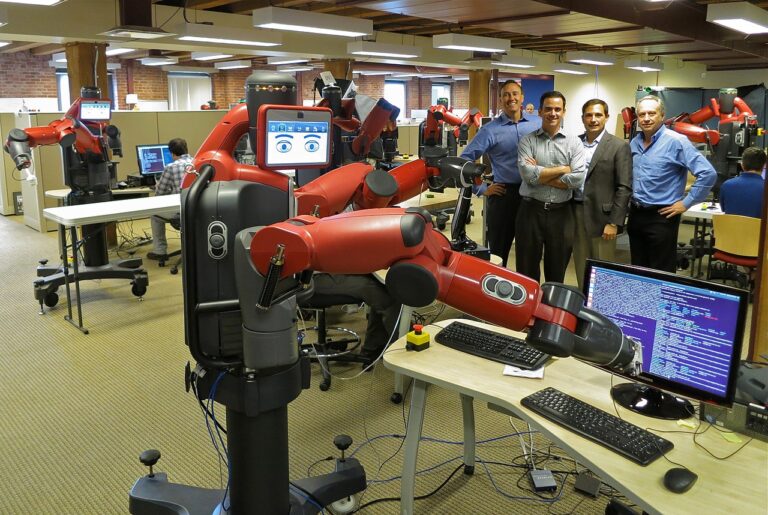For the discriminatory loss of early retirement benefits, the New York State Nurses Association has won a $20.8 million-dollar settlement from New York City. The city repeatedly denied requests from the Assoc. to classify nursing as a “physically taxing” job, and thus denied nurses early retirement (at age 50). The New York Times reports that nearly 1700 nurses – those hired beginning in 1965 and until the program ended for new workers in 2012 – will receive settlement checks ranging from $1,000 to $99,000. Mayor de Blasio was quick to acknowledge the mistake in leaving nurses off the physically taxing list – a mistake that the EEOC in 2010 found was rooted in unlawful gender bias. As of 2010, 95% of the Assoc. members were women.
Rolling Stone reports on a troubled relationship between workers and management at Planned Parenthood of the Rocky Mountains (PPRM), and a union vote hanging in the balance. Struggling with low pay, which results in high turnover and thus inefficient workflows, workers began efforts to unionize. But PPRM CEO Vicki Cowart responded with what organizer Amanda Martin calls “captive audience meetings,” designed to instruct workers on the perils and pitfalls of unions, including pay freezes and stalled negotiations, and strained relationships with higher-ups. When the employees in December voted 72-57 to unionize, PPRM then challenged the vote, arguing, somewhat hypocritically, that it was invalid because not every PPRM branch participated. The NLRB voted 2-1 in favor of management, and the full five-member board is expected to issue a decision soon.
Since voting to authorize a strike on Sunday, the D.C. Metro’s largest union is simultaneously in a “cooling off period” amid negotiations and soliciting political support. Amalgamated Transit Union Local 689 sent letters to regional elected officials, exhorting assistance with the fight against new worker-assignment policies, increasing reliance on outsourced labor and private contracting, and rule requiring a 72-hour notice for sick leave. AUL 689, representing 8,000 of Metro’s 12,500 employees, alleges that Metro is violating the terms of the collective bargaining agreement; if necessary, the letter to politicians states, the workers will strike to “restore the integrity of this system.” According to the Washington Post, no politicians are known to have yet backed the union.
Arnet reports that union workers at the Museum of Modern Art are teetering close to a strike vote. As MoMA’s latest 50,000 square-foot expansion has heightened worker stress and obligations (and has left many putting in late hours without overtime pay), employees have been without a contract since it expired on May 20. MoMA Local 2110/the Professional and Administrative Staff Association of MoMA, represents 260 of the museum’s employees, and is a white collar chapter of the United Auto Workers Union. Local 2110 members have been increasingly vocal in advocating publicly for better wages, medical care reimbursements, job protections for curatorial assistants, and a halt to an increasing reliance on temporary (nonunionized) workers. MoMA is a not-for-profit 501(c)(3) tax-exempt organization with over $214 million in yearly operating revenues and more than $500 million in unrestricted net assets.
Across the pond at the National Gallery in London, art educators, artists, and lecturers are –creatively – turning to crowdfunding platforms to raise the legal fees necessary to petition for employee status. Twenty-seven recently dismissed educators wish to challenge their freelancer status in a hearing before the Employment Tribunal. All of those dismissed had been at the Gallery long-term – some for forty-five years – and claim they were illegally denied worker rights so that management could replace them with lower-paid, in-house workers. (In other words, the Gallery replaced those it characterized as “ad hoc” freelancers with explicitly “secure employment” workers, but the former group claims they were, already, secure.) The claimants frame the Gallery’s move as part of the broader, pan-industry encroachment of the “gig economy.”
Earlier this week the Ninth Circuit affirmed that Taco Bell employees were not on the job when they remained on site during state-mandated meal breaks. Taco Bell offered its workers meal discounts contingent on eating inside the restaurant. Because the employees were technically freed of any job duties, and because Taco Bell exercised no real control over employee action during this break (beside incentivizing sticking around for the meal), the fast-food chain neither violated California Wage Order 5-2001 (regulating breaks) nor owed compensation for this time, according to the Ninth Circuit.
The New York Times describes the factors contributing to location choices for small manufacturers (with fewer than 100 employees), who comprise 95% of domestic manufacturers. These firms are finding that labor costs are “no longer significantly lower in rural parts of the country,” as competition for skilled workers rises. Nevertheless, especially after an urban startup where labor markets are thicker, many choose to resettle in a rural location and remain there, growing roots, and becoming, typically, the second-largest regional employer, after education/social services.









Daily News & Commentary
Start your day with our roundup of the latest labor developments. See all
February 20
An analysis of the Board's decisions since regaining a quorum; 5th Circuit dissent criticizes Wright Line, Thryv.
February 19
Union membership increases slightly; Washington farmworker bill fails to make it out of committee; and unions in Argentina are on strike protesting President Milei’s labor reform bill.
February 18
A ruling against forced labor in CO prisons; business coalition lacks standing to challenge captive audience ban; labor unions to participate in rent strike in MN
February 17
San Francisco teachers’ strike ends; EEOC releases new guidance on telework; NFL must litigate discrimination and retaliation claims.
February 16
BLS releases jobs data; ILO hosts conference on child labor.
February 15
The Office of Personnel Management directs federal agencies to terminate their collective bargaining agreements, and Indian farmworkers engage in a one-day strike to protest a trade deal with the United States.